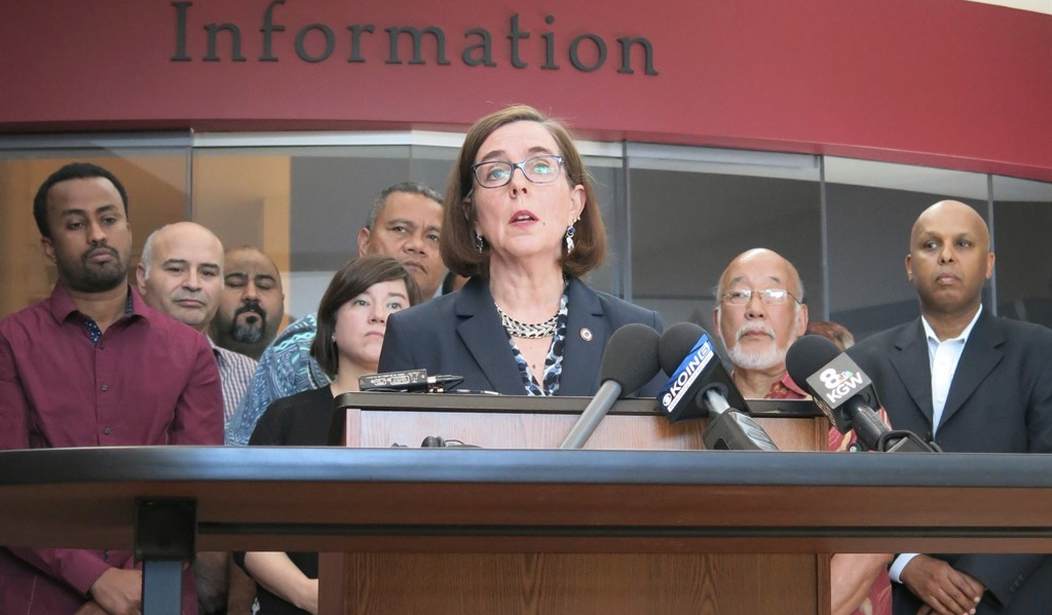The Governor of Oregon, which recently became ground zero in the war on free speech (though dueling is making a big come-back), just signed a new “transgender equity” bill into law. At first glance you might think that this is yet another extension of groups covered for basic civil rights concerns, but it’s actually something quite different. Governor Kate Brown, herself a proudly proclaimed bi-sexual, has modified state law as it relates to the process for legally changing one’s name so that the information will no longer be public. (Associated Press)
Gov. Kate Brown has signed a bill that will make it easier for transgender people in Oregon to shield any updates they make to their birth certificates, a process typically conducted through the court system without privacy from public view.
The measure, which takes effect next year, makes Oregon the second state after California to adopt laws specifically designed to help mitigate potential discrimination against transgender individuals from employers, landlords or anyone else who is otherwise able to dig up birth-record changes through public record.
The new law eliminates the requirement that changes to someone’s name or gender identity must be posted publicly by the courts. It also allows court cases involving gender identity changes on birth records to be sealed.
Here we see yet again another example of how Social Justice Warriors manage to throw a wrench into the gears of government by insisting on special “protections” for one group which wind up negatively impacting everyone else. In terms of whether or not someone wants to change their name and be called whatever they wish… who cares? If you legally change your name to Boaty McBoatface and I’m writing a story about you, “Mr. McBoatface” it shall be. Doesn’t affect me one way or the other.
But the legal process for changing your name does come with a few protective measures built in. In New York for example, as with most places around the country, the steps you need to follow include numerous court inquiries and a requirement to publicly publish the name change announcement in applicable newspapers as ordered by the court. The record of the change is also available to the public.
We’ve been doing that for a long time, well before anyone was concerned over “transgender equity” or related concerns, and it was for good reason. Many people might be interested in knowing if the name you give them isn’t the one you used previously. An employer considering hiring John Doe as his accountant would likely be very keen to know if John used to be Billy Bob Roe who served time for embezzlement. If a mother’s deadbeat former husband has disappeared owing tens of thousands in alimony she’d probably like to be able to Google for any news of him. That becomes significantly harder if he’s living under a new name. And when “Randy Jones” moves into your neighborhood you might prefer to be clued in if Randy used to be James Docksnooker and is on the registered sex offender list.
But in Oregon such concerns may be a thing of the past. In order to “shield” someone so that nobody can learn that “Jane” actually used to be “John” they’ll just tuck that information away from prying eyes. Well done, Oregon. You’ll manage to create some feel-good headlines to win a few more votes in the LGBTQRSTXY community while throwing everyone else under the bus. Isn’t it all just too awesome for words?









Join the conversation as a VIP Member